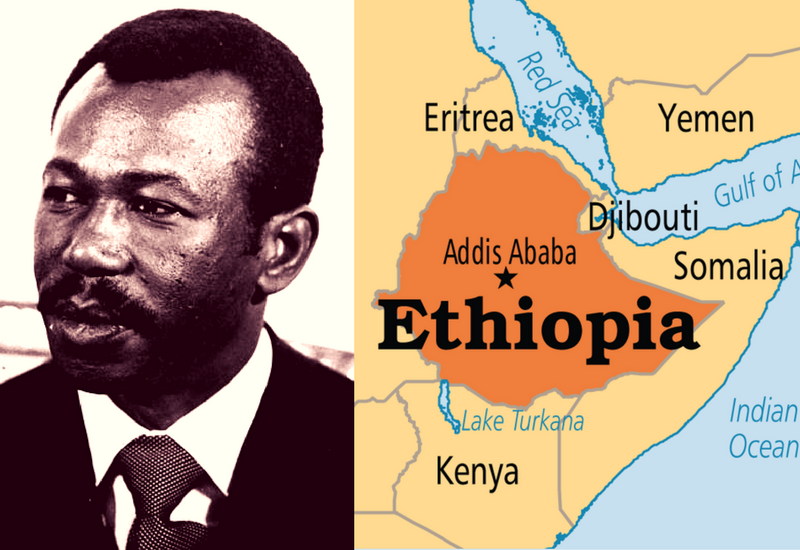
Mengistu’s Rise to Power in Ethiopia
One of the longest surviving dynasties in not only African history but world history was the Solomonic dynasty in Ethiopia. It is important to note that Ethiopia was the only African country that was never colonized. It is believed that the Solomonic dynasty began in the 11th century, however, other historians say it was in the 13th century. It is believed that the emperors were descendants of the biblical King Solomon and the Queen of Sheba. The Solomonic dynasty which had ruled for so long was overthrown by one, Mengistu Haile Mariam in 1974.
The rise of Mengistu Haile Mariam rise was accelerated by the drought that began in 1973 in Welo Province. The tragedy of this drought was that an estimated 200,000 people died of hunger. The conditions in the country were deteriorating but the then leader Haile Selassie underestimated the extent of the drought and the effect it would have on citizens. The drought stricken farmers, students and workers began protesting the Selassie Empire. There was a lot of dissatisfaction regarding the way that the Haile Selassie was handling the drought. The Ethiopians had always been proud and self-sufficient now they were the poster children for hunger and starvation which left the Ethiopians disappointed and eager for change in government.

Mengistu, then Colonel in the army capitalized on the political, economic and social atmosphere and decided that the country was ready for a revolution. He assassinated Haile Selassie and imprisoned the ruling officers then declared himself head of government in 1974. After taking power Mengistu consolidated power by murdering members of the opposition and 60 members of the aristocracy who had claims to the throne of Ethiopia. In 1976, Mengistu started the “Red Terror”. Anyone accused of being a member of the Ethiopian People’s Revolutionary Party disappeared and were eliminated by the Dergue. The Derg or Dergue was the short name of the Coordinating Committee of the Armed Forces, Police and Territorial Army that ruled Ethiopia from 1974 to 1987 which was led by Mengistu. Human rights groups estimate that about 500,000 people were killed by the Dergue. The Dergue received considerable support from the Soviet Union at the time because they embraced communism.
Mengistu instituted land reform by seizing land from wealthy landowners and redistributing it to peasants. Unfortunately, the land reform was not well planned and it resulted in the reduction of agricultural output which led to hunger and starvation. The 1984, droughts further worsened an already fragile agricultural landscape. The drought effects were exacerbated with forced relocation of farmers from the stronghold in the north to the south as a means to destabilize the opposition.



